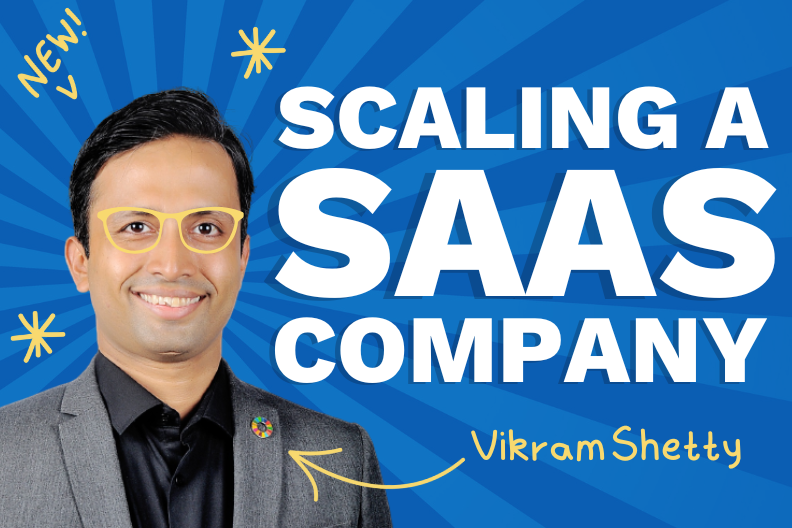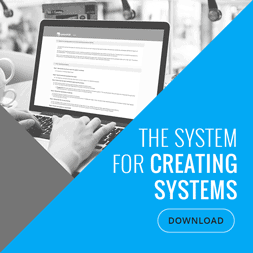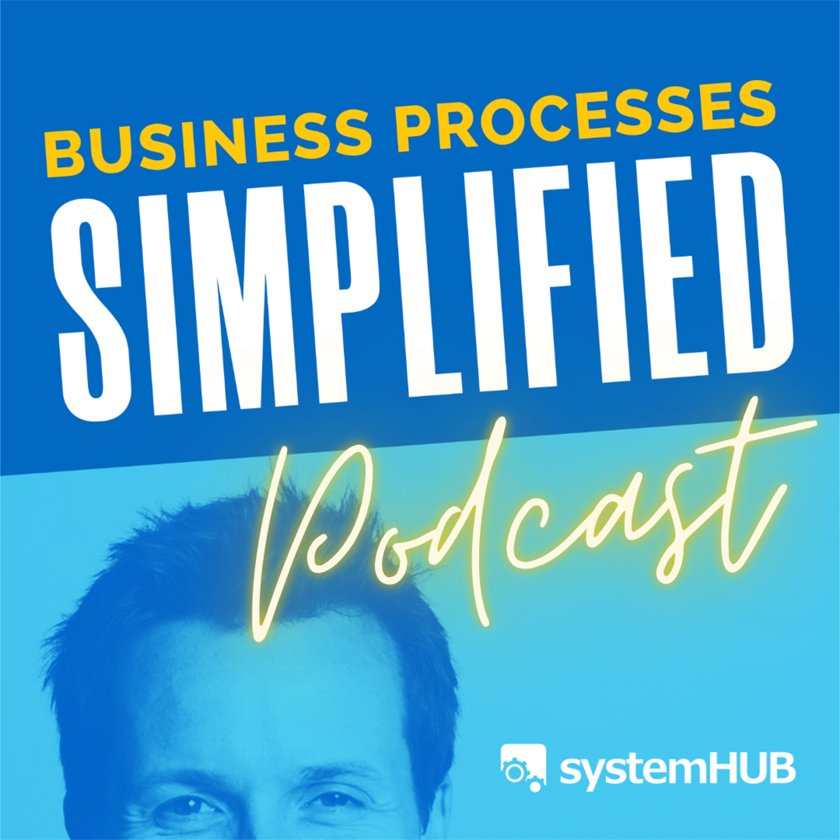Vikram Shetty, co-founder of 73bit.com, was running a profitable but challenging SaaS business focused on ESG (Environmental, Social, and Governance) and sustainability benchmarking. With 25 team members and clients ranging from think tanks to research organizations, his company provided specialized software for collecting and analyzing sustainability data.
“We have always had an ad hoc system,” Vikram admits. “We are bootstrapped, so the growth trajectory was a bit slow, but we were always profitable and focused on our space.”
Despite being profitable, the business lacked the systematic approach needed to scale efficiently. Project timelines varied widely, making resource allocation difficult and creating unpredictable delivery schedules for clients.
When Abstract Isn’t Enough — Discovering SYSTEMology
As a long-time fan of business systems thinking, Vikram had read The E-Myth 10 times in the last 15 years. However, he needed something more concrete to implement with his team.
“E-myth was a little more on a 30,000-foot level — it was very abstract. I wanted something more step-by-step,” he explains. “I started searching, went into Amazon and put the word ‘system’ and searched all the best sellers and your book came on top. I picked seven books in and around the system and yours was one of only two I kept because of the steps that were in it.”
The catalyst came when his team chose “systems” as their annual learning topic during their culture calls — monthly non-work-related conversations Vikram has with each team member to reinforce company culture.
Putting Systems into Action One Sprint at a Time
Vikram’s systematic approach to transforming his business included:
- Identifying the Critical Client Flow (CCF) by selecting their most profitable service with less labor and more guaranteed delivery
- Creating a structured three-week sprint system for project management that established predictable delivery schedules
- Assigning team members specific subsystems to document and understand their interconnections
- Implementing accountability by requiring regular assignments and removing team members who didn’t complete them
- Bringing in an external agile coach to optimize their sprint system beyond basic implementation
- Recording all systems training sessions for new team members to access during onboarding
- Establishing a two-month training system for new hires before introducing them to the broader systems thinking
Achieving Predictable Delivery and Boosted Profits
The implementation of systems has transformed how 73bit.com operates and delivers value to clients.
“Now we have a velocity that is very rock solid. If we say to our client you are going to get feature A, B, and C in this sprint, come what may, they are going to get it with the quality and the standards because we know our velocity,” Vikram shares.
This predictability extends to their business model. The team now knows exactly how much work they can handle, allowing them to manage client expectations better and forecast revenue more accurately. They’ve even shifted to value-based pricing, increasing profitability while maintaining quality.
Perhaps most impressively, they’ve established such confidence in their delivery that they now offer a guarantee: “One of our USPs, we don’t charge for the bugs that we create. If we have created something, if we have delivered it to you, and if it has a problem, we will fix it. No questions asked, no money asked.”


Key Lessons for Business Owners
- Start small and build momentum: “It doesn’t have to be a big one. You start with that small, and you gain that confidence so that you can see how you can extract other systems that can be simple and get that value-added and stack one on top of another.”
- Create a culture of systems thinking: “The people who got it, they were putting in more effort and the speed was increasing very fast…now they are collaborating with each other and rallying the system thing.”
- Use external expertise: “I’ve always owned many of external accountability, a head or a coach kind of a thing where we have worked with that person… to kind of slice and dice each part of it.”
- Recognize that systems create freedom: Their podcast system is so reliable that Vikram is “confident that I can do this for the next 10 years without missing a date.”
- Make systems part of your DNA: “The system mindset is like a lifestyle. You just can’t go to the gym for a month and be healthy for the rest of your life. You have to keep doing that.”
Vikram is now applying SYSTEMology’s steps to his sales process, with the goal of creating a system that can onboard 4 new clients each month. “That adds another 40 to 48 clients that kind of changes the business dynamics altogether,” he explains.
Through implementing systems, 73bit.com has transformed from a company with unpredictable delivery timelines to one with rock-solid reliability and the confidence to scale. As Vikram says, “Eventually a business will transform; one day you will not even realize it.”
Ready to Transform Your Business with Systems?
Discover how SYSTEMology’s step-by-step approach can help you document, delegate, and optimize your business processes. Get started with joining our Systems Champion Academy to learn how to build a business that works without you.









